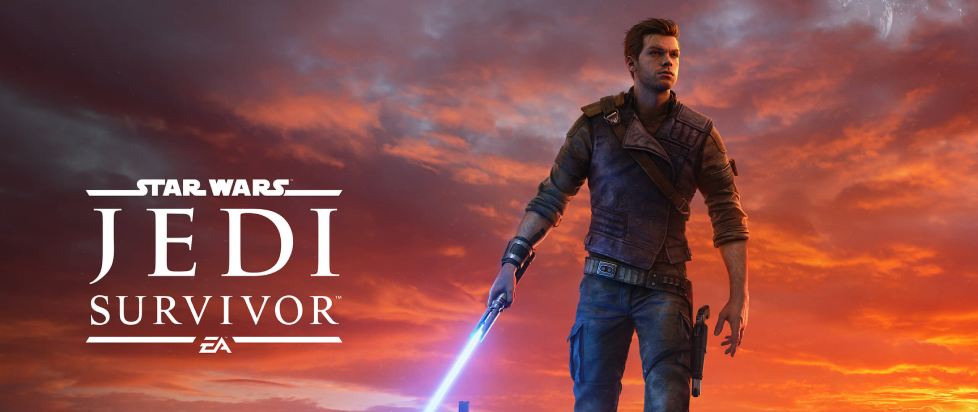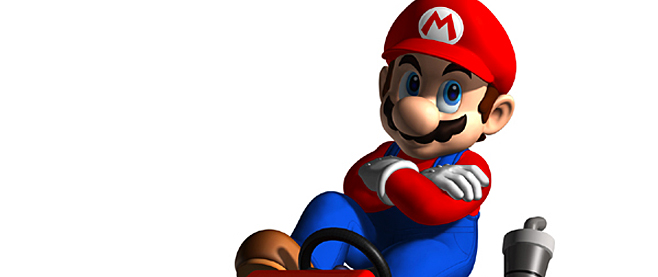
Demanding More from our Sad Dads
Editor’s Warning: This piece has spoilers for the entirety of Star Wars: Jedi: Survivor. Like, straight through to the end. You’ve been warned.
———
We sure love morose father figures, don’t we? Not in our actual daily lives, of course, but in our media, it’s undeniable. Whether you’re looking at Rick Grimes, Tony Soprano, John Marston, Jim Peyton, Kratos, Booker DeWitt, or countless other examples, our fixation on complicated fathers is fascinating. Fellas who mean well but don’t always do the right thing, sometimes for good reasons, but far more often for more selfish, shortsighted aims.
It’s not unreasonable to be drawn in by problematic, or even downright evil characters. Nobody aspires to be Breaking Bad’s Walter White, yet in recent years, games media in particular has grown uncomfortably sympathetic to these sorts of men, regardless of their problematic aspects. Nowhere is this more obvious than the reception to The Last of Us’ good ol’ Joel, a man so utterly beloved that when the inevitable consequences of his actions came to haunt him in the game’s sequel, series fans were furious.
And who can blame them? Joel is the big kahuna of sad dads in gaming. Losing his daughter right at the onset of a zombie outbreak, grizzled and burnt out after years of struggling to survive, but underneath that ruggedness to do whatever’s necessary, he cares enough to treat his game-long escort mission, Ellie, as if she were a second daughter. They bond and rely on one another. Who could possibly take issue with that?
Well, except for the part where he literally starts treating her like his own daughter, to the point her own consent on matters becomes secondary to his own, down to outright contradicting her one mission, the whole point of their journey. It’s a point of contention for many, that the HBO adaptation even attempts to justify by portraying Joel’s rampage against former allies the Fireflies as a mutually ambiguous finale.

Yet at the end of the day, Ellie’s willingness to sacrifice herself, to make her survival, when her beloved died, mean something, is invalidated. It’s a really glaring invalidation, made all the more troubling in the sequel when, despite knowing what Joel did against her wishes, she goes on a veritable rampage against the allies of the daughter of one of the men Joel killed in cold blood. The acts she inflicts are echoes of that same mentality – an utterly nihilistic argument that we are all nothing but creatures of impulsive violence, and hypocritically only those closest to us don’t deserve this misery.
That’s quite the bleak way to look at things, isn’t it? Jedi: Survivor’s Cal Kestis is inclined to agree. However many issues one can find in Kestis’ own portrayal over the years, it’s at the final third of Jedi: Survivor that Cal comes into conflict with a former ally who’s heel turn is virtually 1:1 with Joel’s.
Bode Akuna spends much of Jedi: Survivor as your streetwise mercenary buddy toting blasters and a jetpack. His role for much of the story is teaching Cal to live as his own person rather than clinging to flawed aspects of the Jedi code in an era where the Empire reigns supreme. Bode is like a big brother the young Jedi never had, helping overcome some of his arrested development.
While his heel turn is clearly foreshadowed – it’s a modern Star Wars title so subtlety isn’t a priority – the motivation and more importantly how he goes about betraying you is very specific. When Cal and company discover a planet safe from the Empire that could be used as a hiding place for the remaining Jedi and other “undesirables”, the initial plan is just for themselves. At this point, Bode’s onboard with this, quietly expecting to betray the Imperial officer who’s kept him off the Empire’s radar by using him as a double agent.
Yet as Cal makes plans to invite all who seek a haven from the Empire, Bode kills one of the group’s Jedi allies, calls in the Empire’s armies to crush his other former friends, and immediately hurries home to his daughter, Kata. He’s mentioned her repeatedly, but when we meet her in his apartment, we learn that her mother died to protect her and Bode from the Empire’s Jedi hunters. Not only does Bode have the same guilt of losing family and stability, but his sole priority anymore has become protecting his daughter by any means.
Amid all the backstabbing and spying, Bode’s become ruthless, with a bodycount easily equal to Joel’s, but it’s even worse because he’s done it with a smile. He’s not some gritty looking warrior like Joel, but instead he’s a sitcom dad, resembling Tony Danza and Ray Romano. Joel being liked and sympathized with came courtesy of him being our point of view character for much of The Last of Us, but also because we saw who he was before. We know he used to be a decent person and thus the same justifications going through his head start to go through the player’s. It’s with Bode that we see those same feelings and justifications from the outside.
When we learn that Bode isn’t only another Jedi survivor in hiding, but actually more powerful than Cal was this whole time, it’s a rare moment of feeling like you’re the NPC in someone else’s game. Unwinnable boss fights aren’t unusual for games, or even this series in particular, but it’s not simply here to make for a dour moment. Bode’s willingness to go to the dark side, to do whatever he needs to in order to achieve his goals and his goals only, is what makes him a villain.

For a brief moment, when Cal verbally confronts Bode in the latter’s home, Bode even admits, Cal’s the best friend he’s ever had. Bode gives his whole backstory, explaining his dead wife, playing double agent, but none of that mattered – he’d walk away from it all and work with Cal if their new perfect hiding spot was purely used for Cal’s family and Bode’s. Then Bode exclaims, “But you were gonna give it to the Hidden Path. A bunch of strangers!” Cal calls the other a monster for willingly sacrificing others, only for Bode to reply, “No. I’m a father.”
Except this single justification, his only ground to stand on, literally collapses under the one person he’s protecting. When Cal and his remaining allies track down Bode and his daughter on the isolated world, even Kata agrees that her father is scaring her, pleading with him moments before the final boss fight begins to just stand down and listen to her, if not Cal. Bode’s selfish rage is unleashed in this moment, collapsing a bridge between him and his daughter, nearly sending her falling to her death before turning into a frothing rage monster of a final boss.
Every move Cal can do, Bode can unleash, with more up his sleeve to boot. It’s meant to be a test of wills, to the point that as you nearly succumb to your wounds as he’s wailing on you, you’re prompted to give in and “embrace the darkness”. Bode’s very presence at this point is dragging everyone else around him further into misery that could’ve been avoided had he simply not chosen to be selfish or given into his fear. The man is so doggedly without hope that when he’s defeated, on his knees, he still keeps trying to wipe out those trying to do what’s right.
In the epilogue thereafter, Kata speaks with Cal’s love interest, Merrin, about what happened, addressing grief in a healthy conversation, unpacking all that led Bode astray. Cal and Merrin dedicate themselves to ensuring the cycle doesn’t repeat for Kata – to give her a family and to teach her a better way.
That closing note is the loudest, as it directly contradicts the final part of The Last of Us: Part II’s own argument. When Ellie has finally realized the error of her ways and starts over with her girlfriend (and later, wife) Dina, all it takes to ruin that is Joel’s brother Tommy coming back into her life, dragging her into a redundant, grueling final hunt for the same woman who’d already spared Ellie’s life years prior despite having every reason to put her down. And somehow, she agrees, even against Dina’s pleading. All for it to result in nothing but more loss as Ellie loses some fingers and comes home to an empty house. It’s the closest the series comes to outright condemning your actions, but it lingers in ambiguity of which is the true failure: sparing Abby, or going after her again in the first place. For many players at launch, the sentiment was disconcertingly the former, rather than the latter.

By contrast, in the post-campaign exploration of Jedi: Survivor, you can find echoes in the Force, thoughts and conversations Bode had while Cal was unaware. In them, the condemnation is made complete, showing how even his seemingly kindest actions were done out of self-interest, not unlike Joel’s kindness to Ellie comes from a desire to fill the void left by his dead daughter. Where once sympathy had been built up over hours of conversation, now the player is made to face up to the realities of this questionable archetype while growing from it.
Ellie is nothing but an unfortunate aftershock of Joel, a living echo, where Cal, Kata, and their found family still have a chance. They carry the scars of Bode – the darkness of that day will always be a part of them – but it’s not what wholly defines them. It was by letting one mere tragedy shape the rest of his life that Bode ends up just like Joel: a killer without remorse, too afraid of reconciling with what he’s done. Except Bode will never be a martyr like Joel. He isn’t held up as some misunderstood hero, but instead recognized for being simply an avoidable tragedy.
There’s a time and place for gaming’s sad dads as protagonists, but over the last decade or so, they’ve become worryingly common, embodying other troublesome tropes like “the one good guy with a gun”. If we’re going to keep exploring characters like this, then we need more nuanced examination of what the archetype says, and what it means outside of the context of being the playable protagonist.
Jedi: Survivor’s writing might be blunt as a hammer on glass, but it’s admirable for at least trying to really examine what this sort of character would be like for players on the receiving end. Hopefully, with the success of Survivor, more games will go further to reconcile with our glut of sad dads. It’s a faint hope, but it’s a hope nonetheless.
———
With over ten of writing years in the industry, Elijah’s your guy for all things strange, obscure, and spooky in gaming. When not writing articles here or elsewhere, he’s tinkering away at indie games and fiction of his own.



